

Andrew Maclean
2025 Honda Accord e:HEV RS vs Toyota Camry SL: Spec Battle
3 Months Ago
The mid-sized Korean turbo six-pot sedan remains a compelling and likeable luxo-muscle package despite showing its age in a few areas.
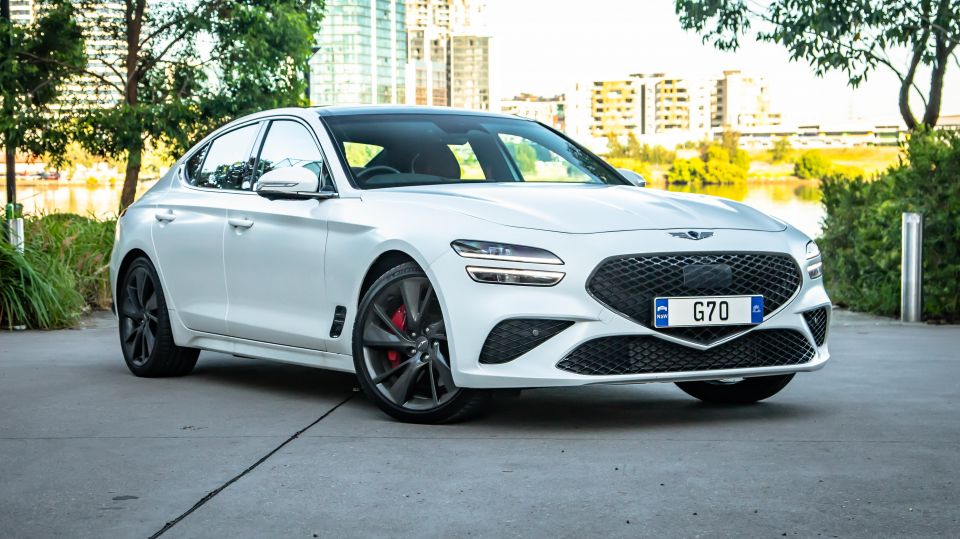
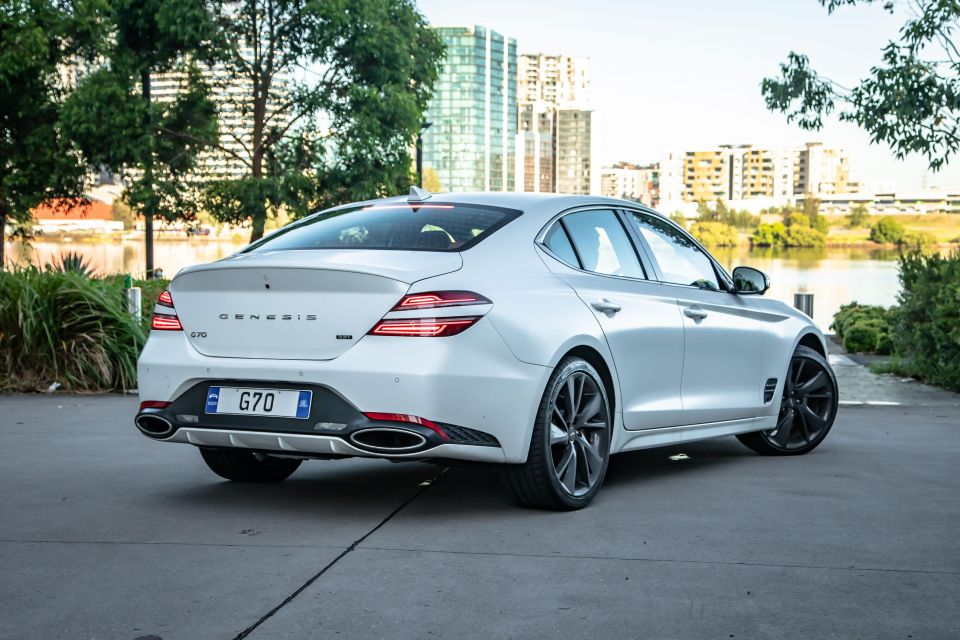

Quickly see how this car stacks up against its competition. Select any benchmark to see more details.
Where expert car reviews meet expert car buying – CarExpert gives you trusted advice, personalised service and real savings on your next new car.
The Genesis G70 continues to fly under many radars, despite its fairly recent facelift so elaborate it virtually bestowed a new identity in grafting the new-Genesis ‘Athletic Elegance’ design language onto an existing model originally minted in an older look.
Brute-ish, classy, upmarket and somewhat sporty in its, erm, Sport guise, Korean stylists have chiseled a nicely cohesive look for the mid-sized four-door, even if it’s not quite as clean-sheet fresh as the marque’s more contemporary SUV models.
And low-fly it does, at least in the big-engine 3.3T guise. Splitting G70 into four- and six-pots is an established primo European formula predictably poached and even a cursory glance at the Sedan and Shooting Brake wagon reviews we’ve published to date to see verdicts and ratings vary widely depending on which heartbeat is sampled. Needless to say, we like the bigger heartbeat by a fair measure.

The core G70 3.3T Sport is nice. It’s nicer still with a pricey Luxury Package applied, which opens up the further option of tasty matte paintwork, all, of course, at spiralling outlay. But it’d want to impress, especially against the likes of the recently launched, techno-glitz-laden Mercedes-Benz C-Class.
Korean (and Japan’s Lexus) does what Asian premium marques do and load the features list to the hilt, moreso than the Euros tend to do for similar coin. And that includes offering fulsome turbo-six power as a performance sweetener to take on four-pot Europeans.
But does the well-massaged 2022 Genesis G70 3.3T Sport sedan come together in a package worthy of serious consideration against the A4s, Cs and 3s it plays against?
The regular G70 3.3T Sport lists for $76,000 plus on-road costs. Our tester fits the Luxury pack at a $10k upcharge, opting for Sevilla Red interior, one of three available colour schemes.
Matte paint, which requires the Luxury option box to be ticked, adds a further $2000, our Verbier White Matte one of three un-glossy hues available. All up, around $88,000 list.
Worth a mention here is that five years of complimentary servicing is bundled into the vehicle cost and Genesis has also just rolled out its guaranteed future value program, too.
Six-powered rivals? These include Audi S4 ($105,000) and BMW M340i xDrive Pure ($101,900), while the newly launched W206 Mercedes-Benz C-Class has yet to lob in six-pot AMG C43 guise. You’ll need to stump for the hi-po Alfa Romeo Giulia QV ($143,500) or Maserati Ghibli GT ($142,990) for Italian alternatives.
Of course, there’s always the larger, more-affordable, mainstream-badged Kia Stinger GT ($64,960) for those after thrifty six-cylinder performance in a luxo-laden package.
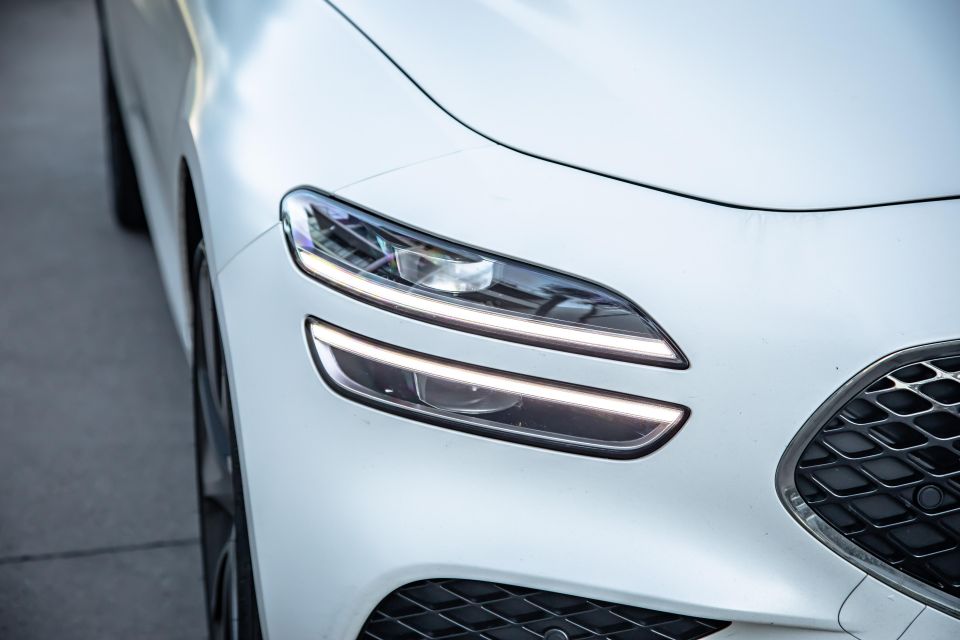
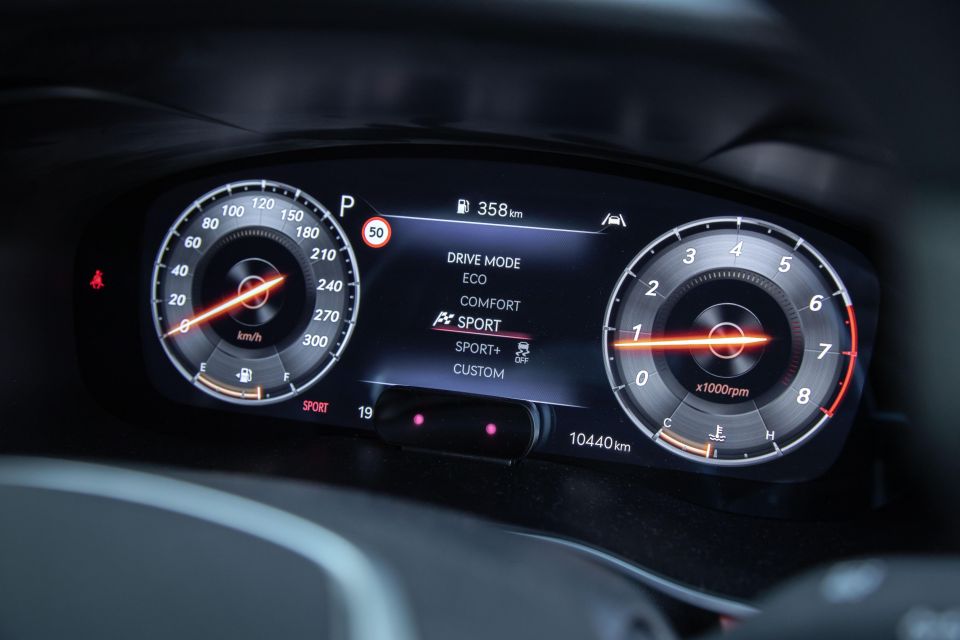
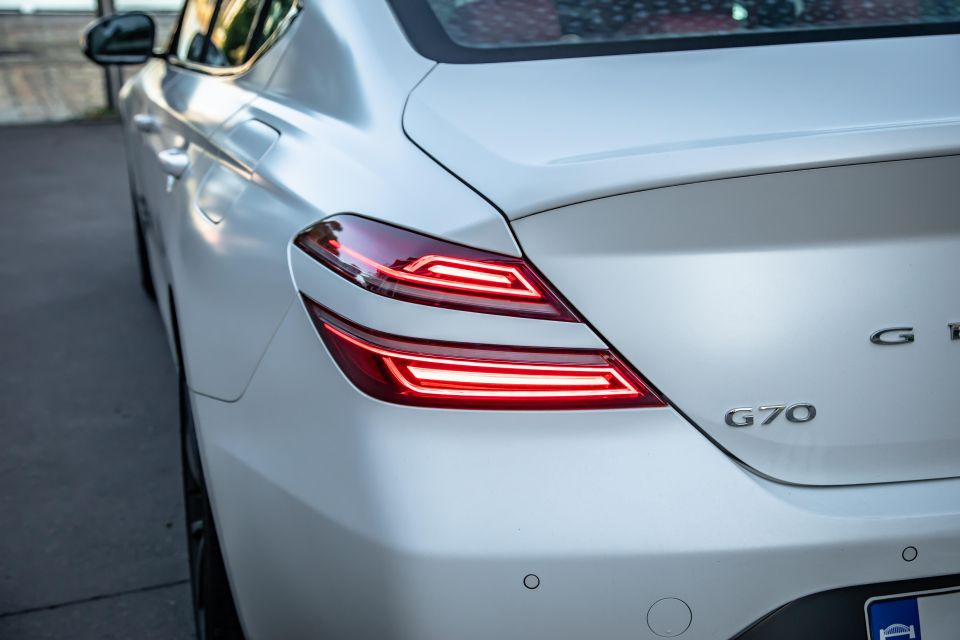
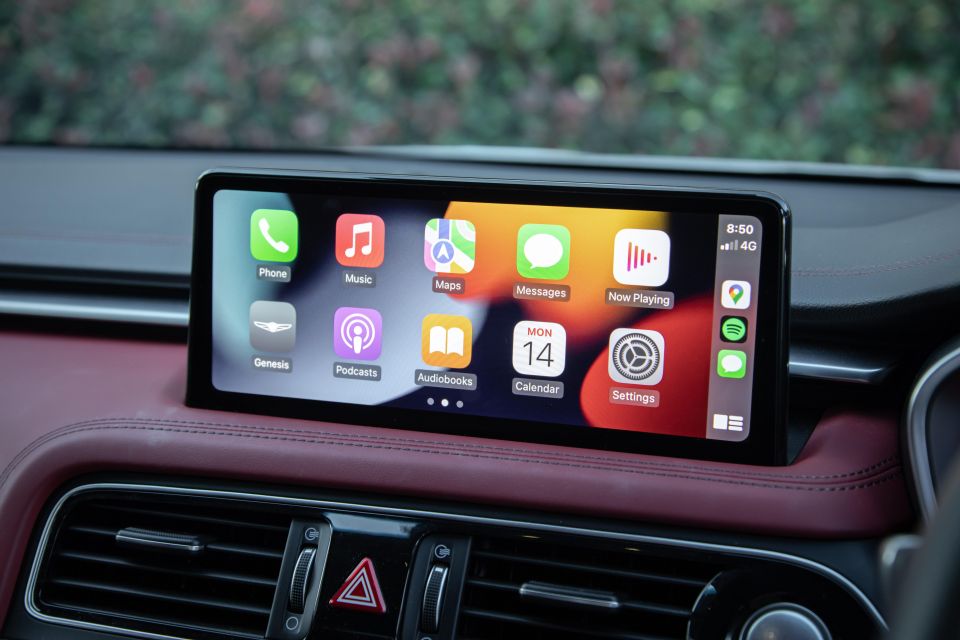
All G70 models come standard with:
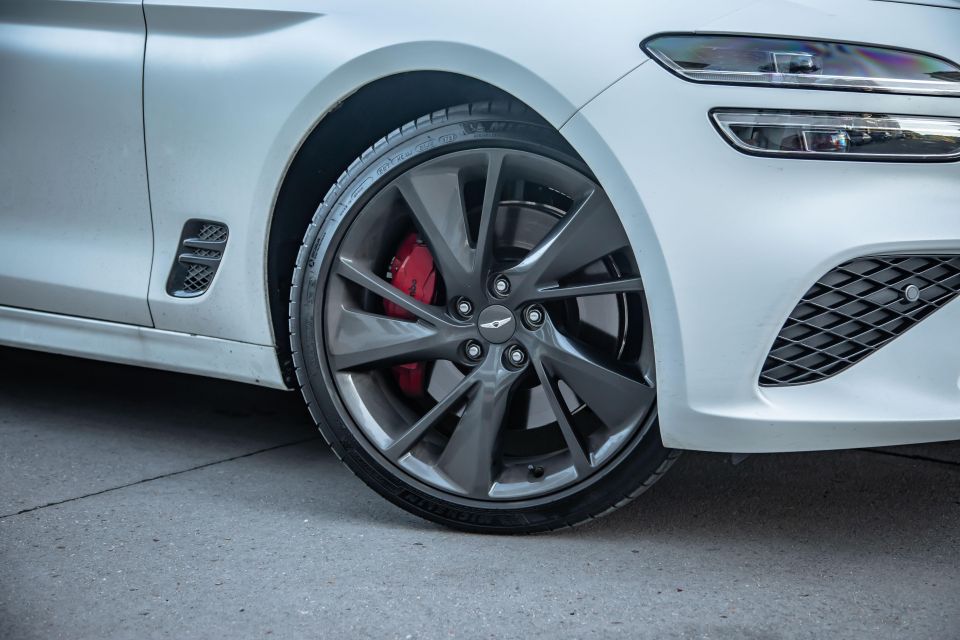
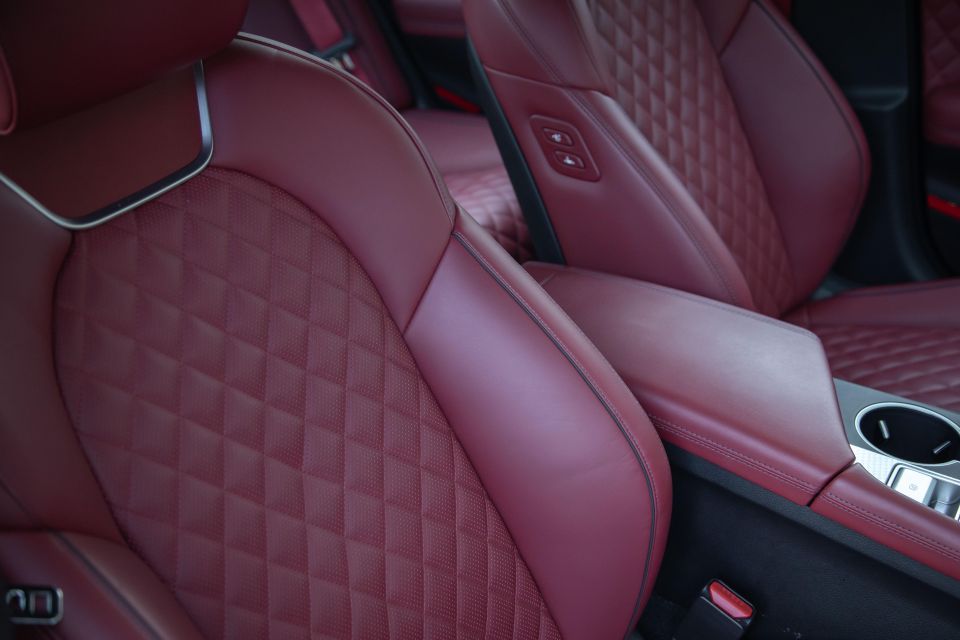
G70 3.3T Sport adds:
The Luxury Package ($10,000) adds:
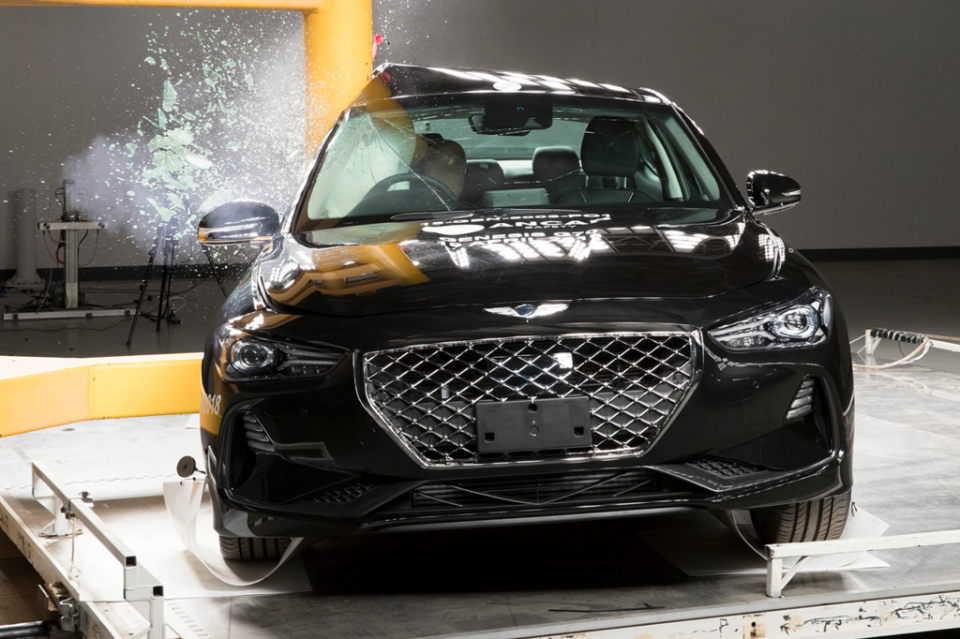
The Genesis G70 has a five-star ANCAP safety rating, based on 2018 assessment of the pre-facelifted model.
It received an adult occupant protection score of 81 per cent, a child occupant protection score of 86 per cent, a vulnerable road user protection score of 69 per cent and a safety assist score of 81 per cent.
Standard safety equipment across the range includes:
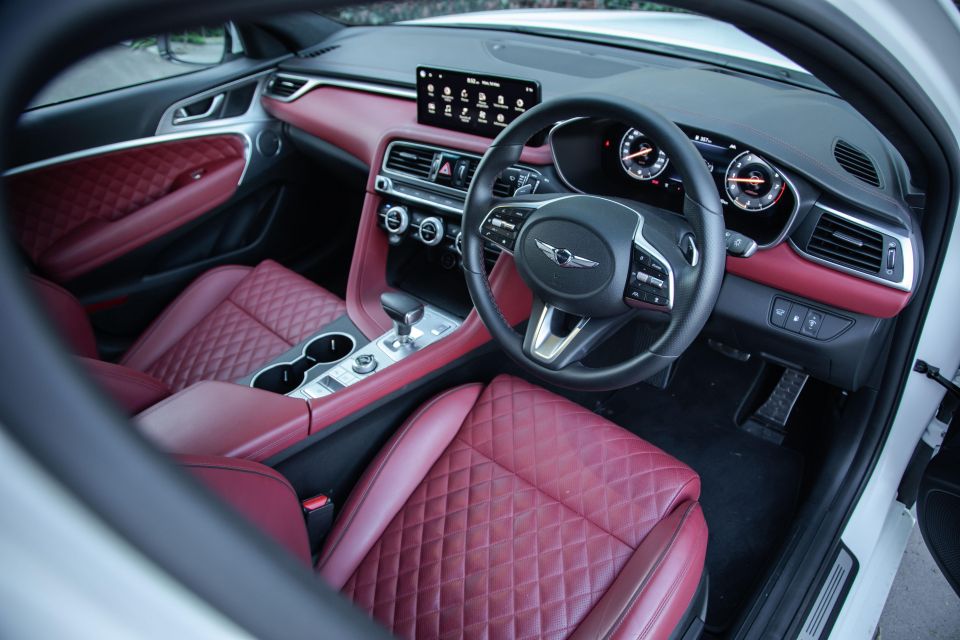
It would be remiss not to touch on the X-factor the exterior exudes. Even the strangely milky white paintwork brings a certain upmarket vibe and distinction and Genesis seem to be embracing low-sheen paint with impressive effect, where it’s fallen out of vogue to a large extent with European counterparts. It presents a promise the cabin mostly delivers on once you climb inside.
We’ve heaped praise on the Luxury-spec G70 interior before and it remains a strong suit, at least in cost-optioned Luxury form. The colour theme – again, one of three – and sense of quality is fittingly high and the selection of materials and how they’re styled together creates a proper knockout.
The turned alloy inlays are beaut, as is the suede headlining. Just the way the asymmetric dash fascia is trimmed and stitched goes a long way in anchoring its premium vibe.
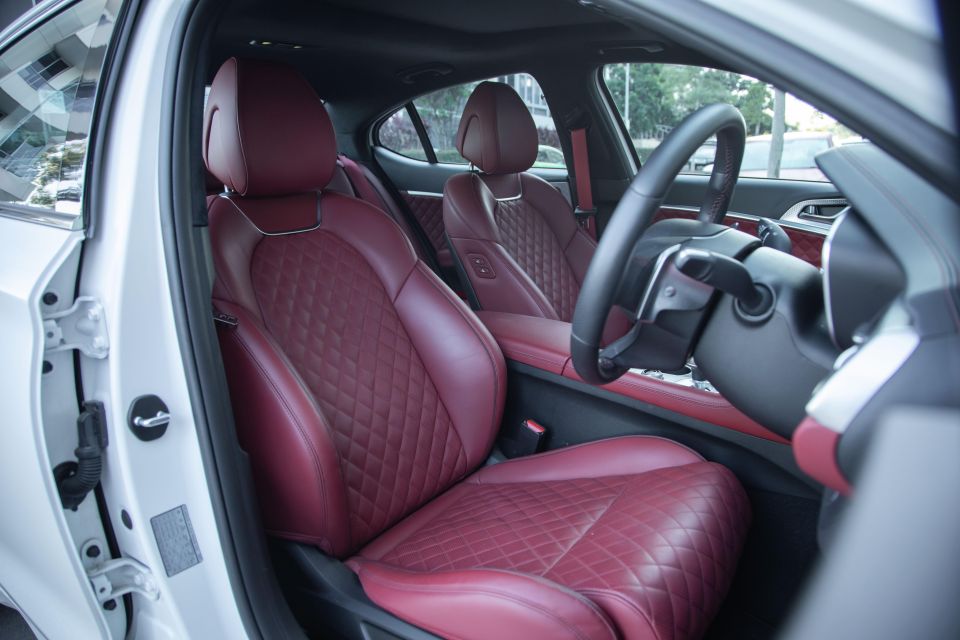

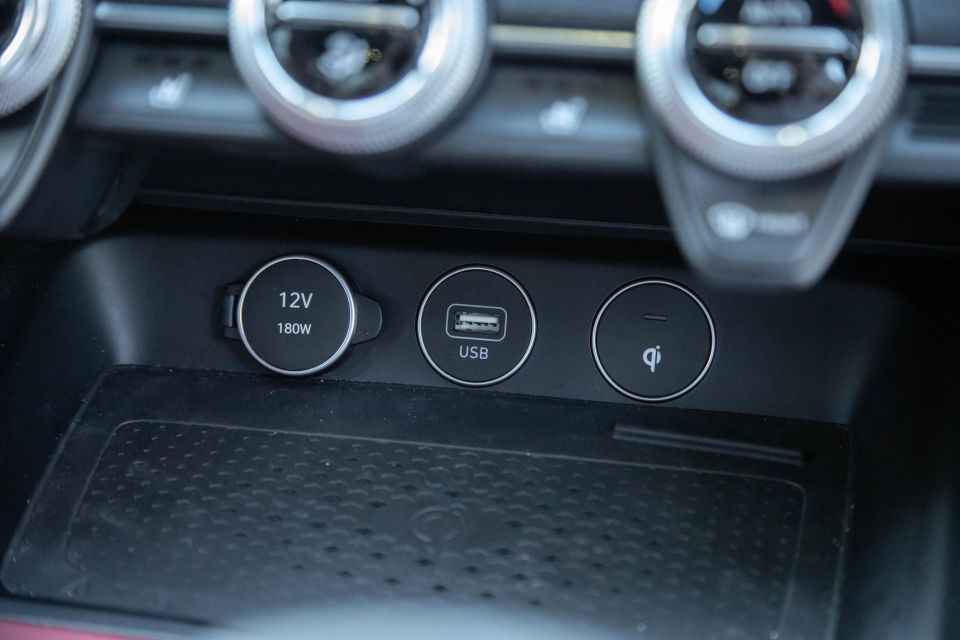
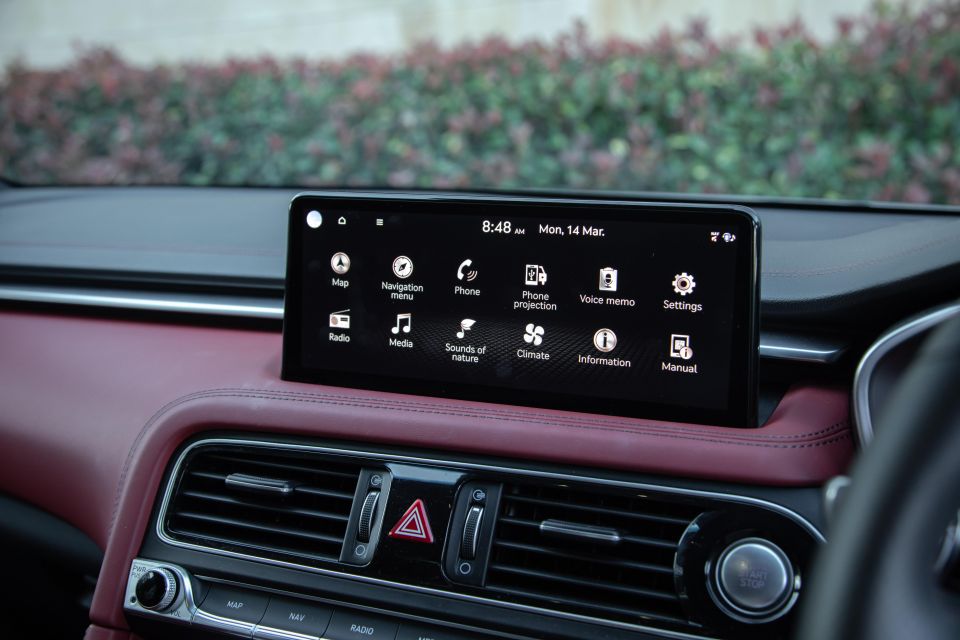
The fantastic-looking front seating is low-slung and sumptuous, the quality of the Nappa leather trim superior to real or fake stuff found in European offerings for similar money.
There’s just the right blend of sportiness and comfort, with a rear driver-centric vibe offering intuitive controls and clarity in the displays, from the neat (optional) 12.3-inch 3D-effect instrumentation – as gimmicky as it might be – to the HVAC arrangement.
And as we’ve pointed out in the past, Korea’s approach to under interface is lightyears better than what rival Lexus continues to pump out.
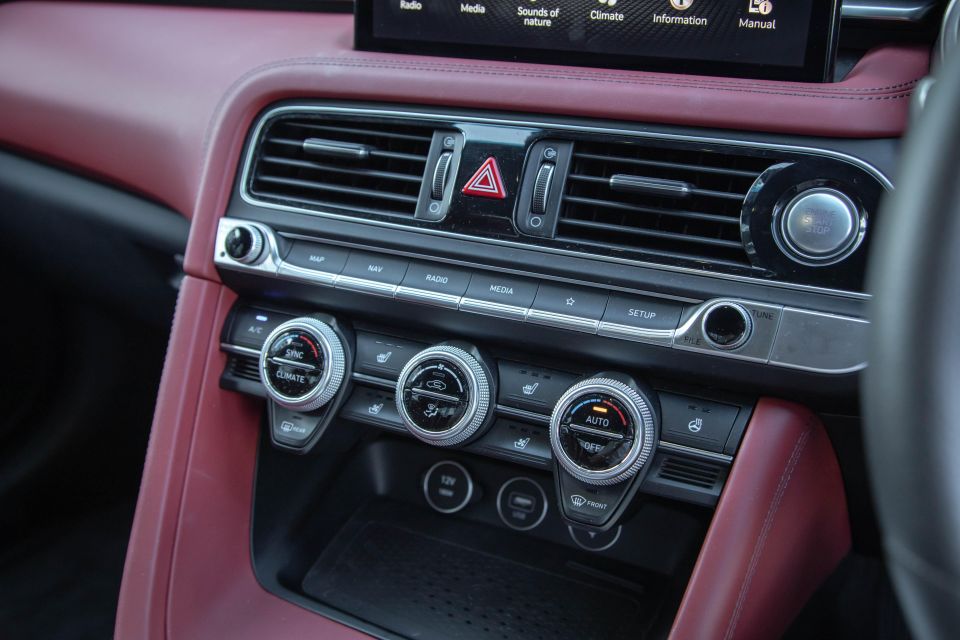
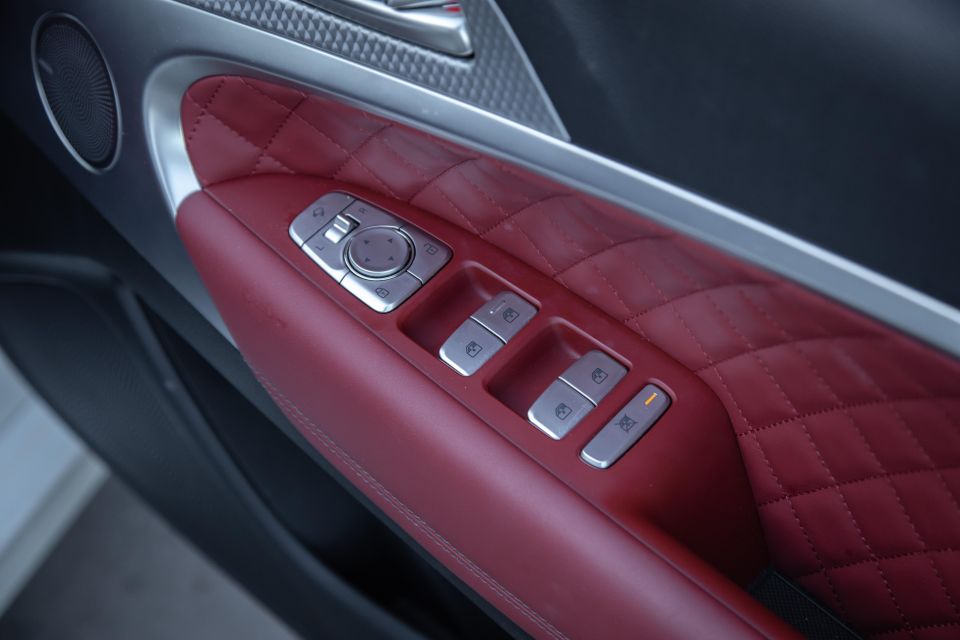
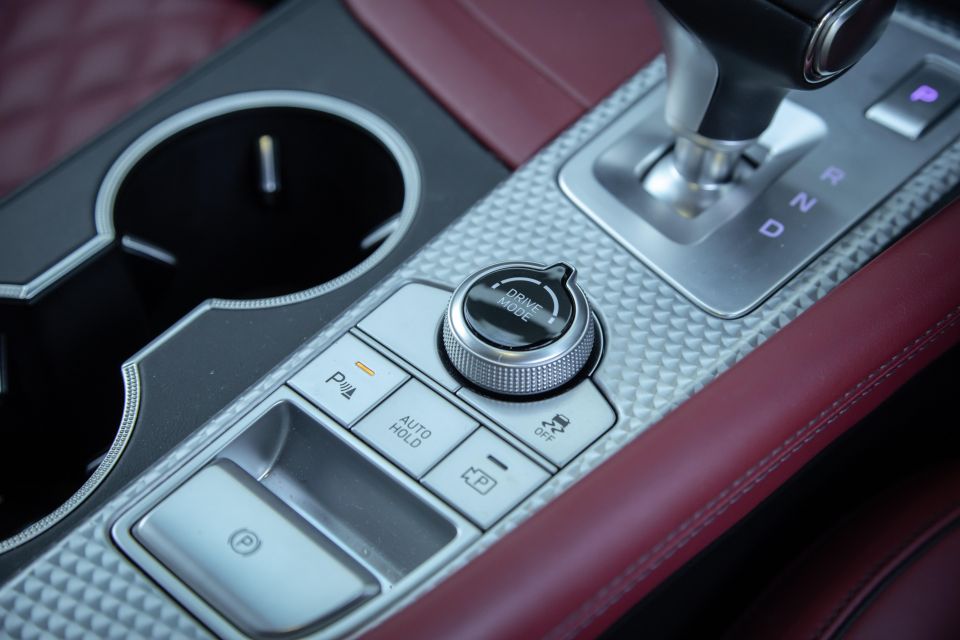
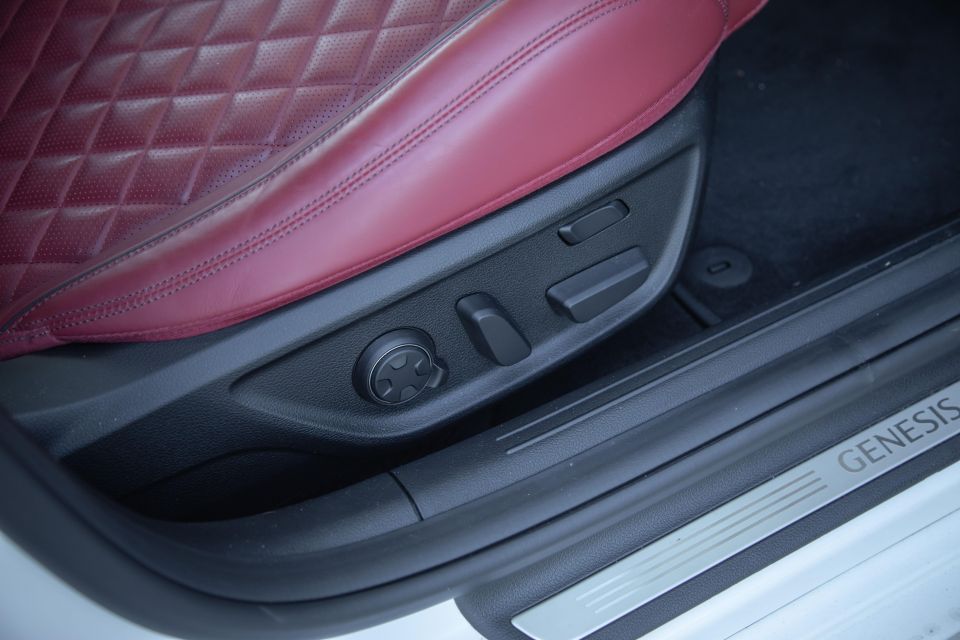
In fact, the only real issue with the G70’s cabin is, well, what the GV70 offers – and what the new C-Class offers. As leading-edge as the Genesis sedan’s core elements and design were when they first lobbed, the game of interior presentation changes at a lightning pace and some of the cabin is starting to feel a little old-hat.
Crucially, this isn’t an issue if you’re not chasing the latest and slickest in cabin style and, indeed, the G70 remains quite contemporary. It’s just that even its SUV stablemate feels a generation fresher in many respects.
Case in point is the shiny silver climate dials which, like many of satin metal-look controls, feel plasticky and look like they’re sourced from last decade’s parts bin.
The infotainment system, too, offers content that appears hewn from an older ethos than even many of today’s latest Hyundai models, perhaps due to the date of the technical architecture the sedan is built from. That said, the camera system, particularly the forward view, is fantastic.
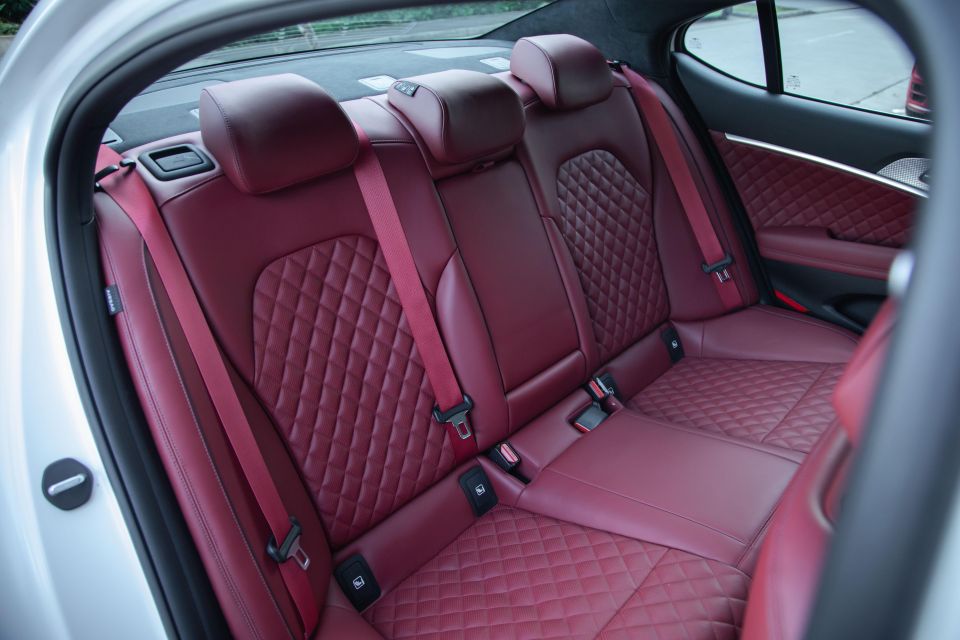
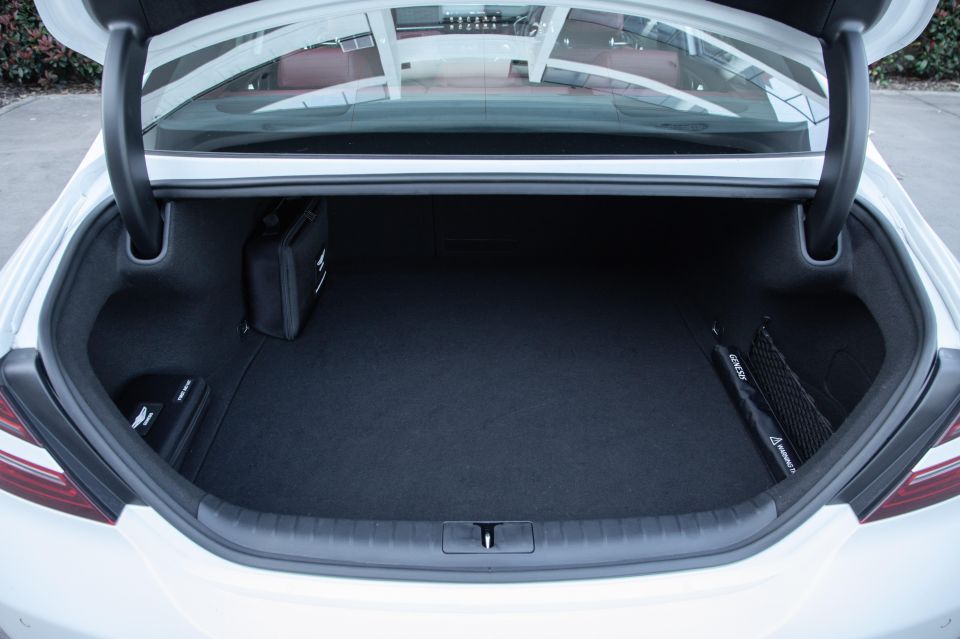
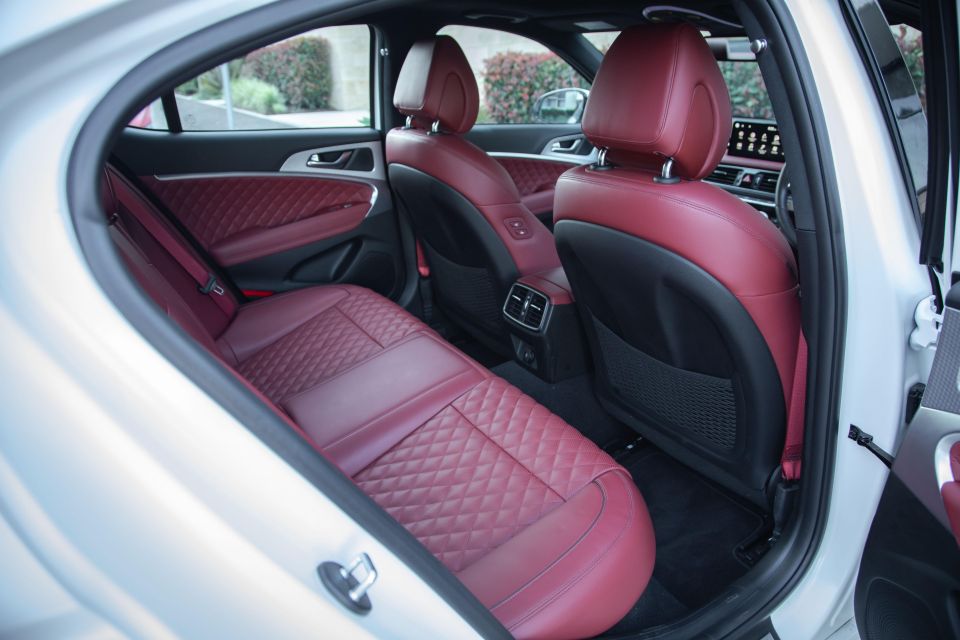
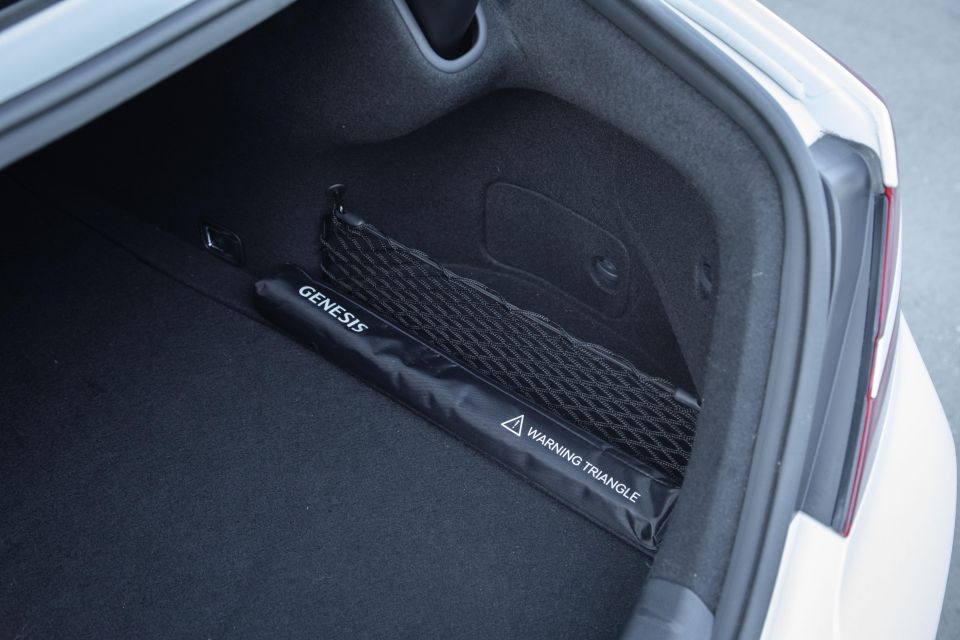
Small gripes perhaps, and certainly nothing downmarket in the isolated experience, but certain elements do age the G70.
There’s a nice, large 15-watt inductive charge pad and the G70 uses USB-A ports rather than the newer-style USB-C type and Apple CarPlay is wired rather than the wireless format found in some Euros.
The low-slung roofline doesn’t do rear headroom many favours and rear legroom is decent if not entirely generous. There’s a strong outboard focus in row two that also hinders proper five-adult practicality, though the seating itself is comfortably contoured and supportive in all the right places.
Meanwhile, boot space, at 330 litres, is surprisingly compact for the sedan’s mid-sized girth.
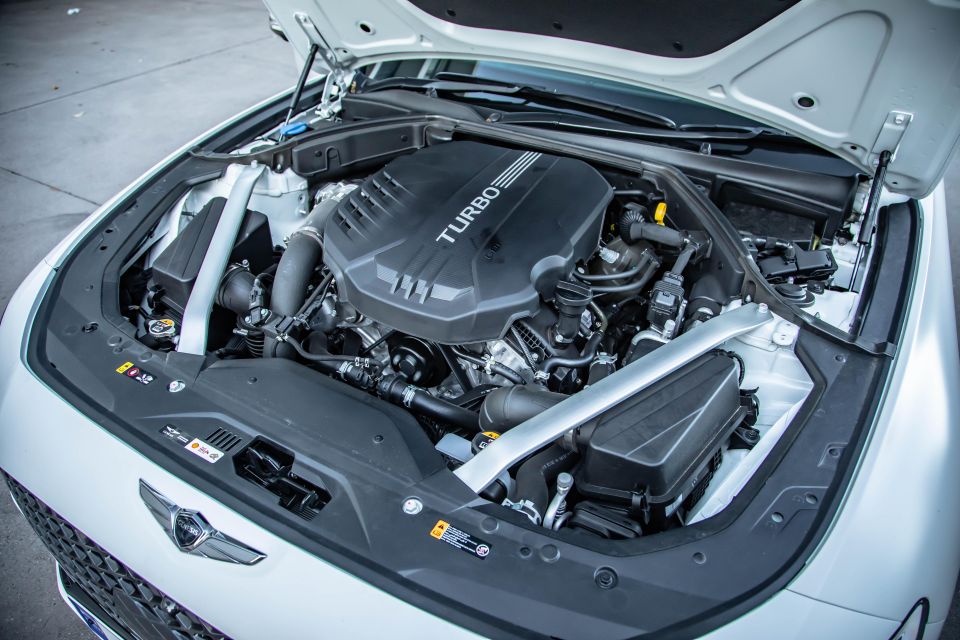
As its name suggests, the 3.3T Sport fits a 3.3-litre V6 with twin-turbocharging and direct injection, offering 274kW at 6000rpm and a fulsome 510Nm in a broad 1300-4500rpm band. Its nominal two-kilowatt increase for the new-look G70 is down to its new variable exhaust system.
That’s a fair hike over the 2.0-litre turbo four versions that output 179Kw and 353Nm. Both G70 engine choices are backed by different eight-speed torque-converter automatics driving the rear wheels, the V6 fitting a mechanical multi-plate clutch-type LSD. The 3.3T also exclusively fits adaptive suspension and a variable-ratio steering rack.
All G70s fit staggered-width 225mm front and 255mm rear Michelin Pilot Sport 4 rubber on 19-inch wheels.
Combined consumption is, at a claimed 10.2L/100km, not exactly stellar, but that’s the price you pay for its 4.7-second 0-100km/h performance promise. Premium 95 RON unleaded is required in its 60-litre tank.
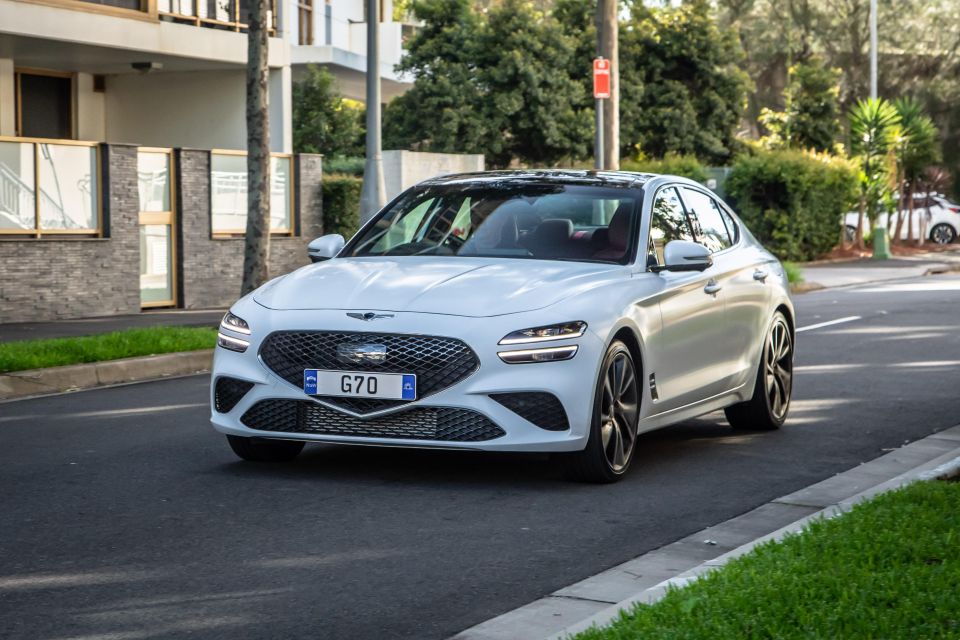
At a portly 1765kg in its most lavish guise, the six-powered G70 is no featherweight. And, together with the low-slung seating, it feels more substantial than you’d expect from a mid-sized sedan just 4.7 metres in length.
That said, the big twin-turbocharged V6 certainly compensates for the heft and its 510Nm, from just 1300rpm, does a commendable job masking it nicely.
While as light on its rubber as some turbo-four-powered premium sedans, the sheer thrust of the six makes it nicely docile at a cruise, effortlessly urgent getting a move on and quite dynamite-like when you give it the berries. Too polite in pre-facelift guise, this new version’s adaptive exhaust system really brings some ceremony to the soundtrack on the march.
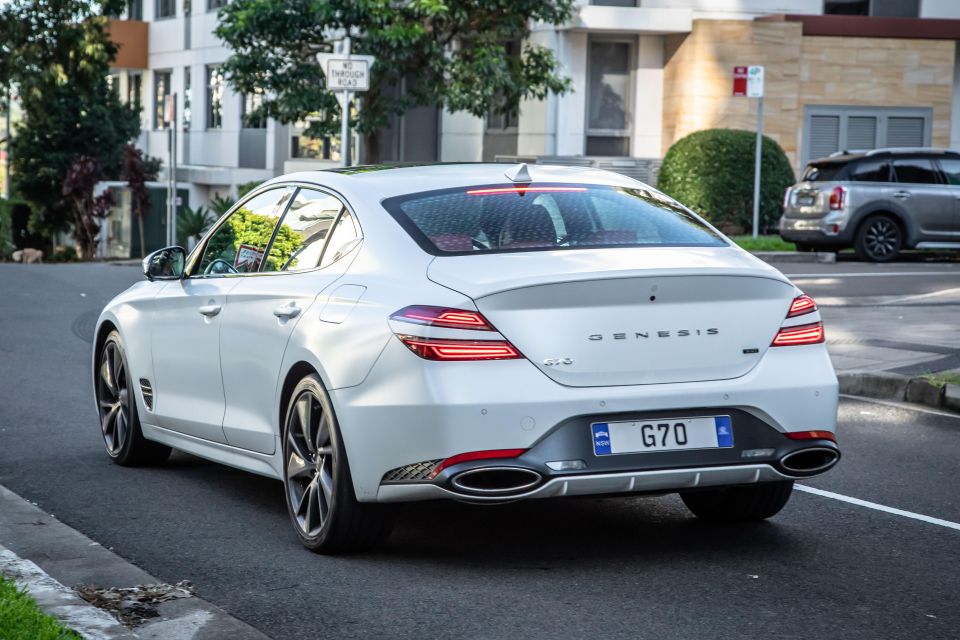
The only real struggle with forward motion is traction. In anything other than Sport+, the traction control clamps down too hard too quickly, but activating the mode relinquishes any electronic assistance. Thankfully, the stability safety net is deactivated separately.
Obviously, the Korean performance sedan doesn’t ply all-paw traction as some German contemporaries do – or like G70 models available in Korea and the US – but while it’s somewhat more traction-challenged this also makes the G70 wonderfully old-school and, to a degree, purer and more muscle car-like. Some of us like to milk the edge of tyre adhesion with a squeeze of the right foot.
Sport+ mode brings newfound sharpness to the powertrain calibration, steering response and a surlier damper setting for the adaptive suspension. In milder drive modes, the G70 is quite polite and polished in nature, with a firm yet reasonably compliant ride that bringing a certain sportiness to general driving without unnecessary discomfort. Sport mode, too, gives your ribs a squeeze via the front seat’s active side bolsters.
If there’s a foible in G70’s daily-driven chops, it’s that the brakes are quite bitey in feel and urgent response at low speed.

Where the six-powered G70 is most convincing in when it’s tasked with grand touring, there’s enough stonk on tap that you rarely need to chase its 6200rpm redline and there’s ample flexibility underfoot for any overtaking, merging or corner-carving whim. It’s both passive and potent, depending on what you need and where, with much more Jekyll and Hyde than the 2.0-litre G70.
In other words, as a sport-luxury blend, it talks the talk. It doesn’t really favour either discipline but finds a nice middle ground, even if in some detailed areas such as steering weight and secondary ride comfort, it gets a little heavy-handed or terse.
You can, if you wish, dig through the touchscreen submenus and dial up a personalised powertrain, steering and suspension calibration setting assignable to a Custom drive mode. Nice.
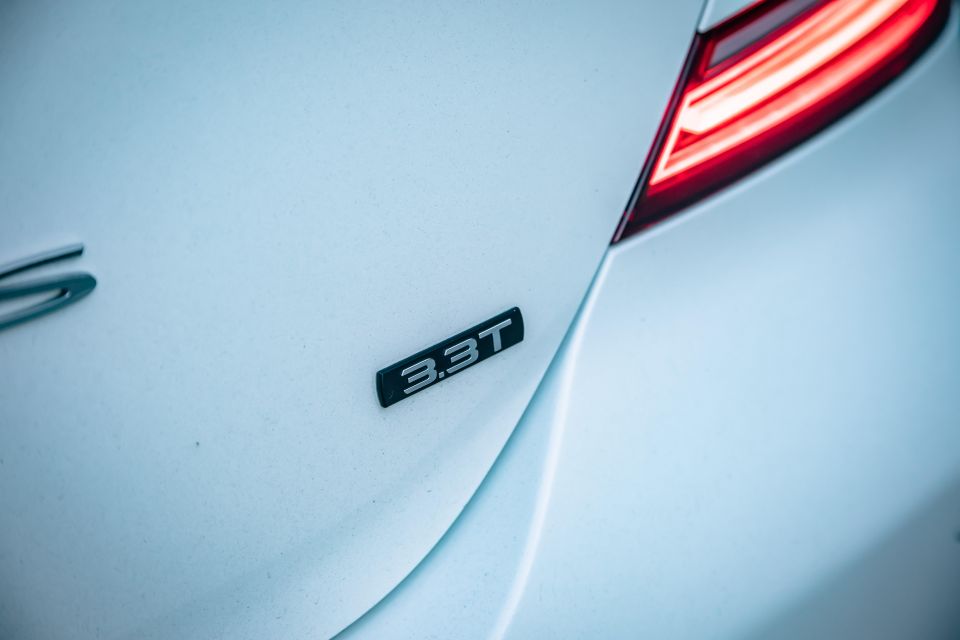
Where expert car reviews meet expert car buying – CarExpert gives you trusted advice, personalised service and real savings on your next new car.
Nothing. Nada. Zip. Zero.
At least for the first five years and 50,000km – where scheduled servicing is free. Unsurprisingly, that period corresponds neatly with the five-year, unlimited-kilometre warranty.
Genesis also offers a conditional Service Concierge where your vehicle is picked up and returned for servicing if you’re within 70 kilometres of the Sydney, Melbourne or Brisbane CBD, with a courtesy vehicle offered for use while yours is awol.
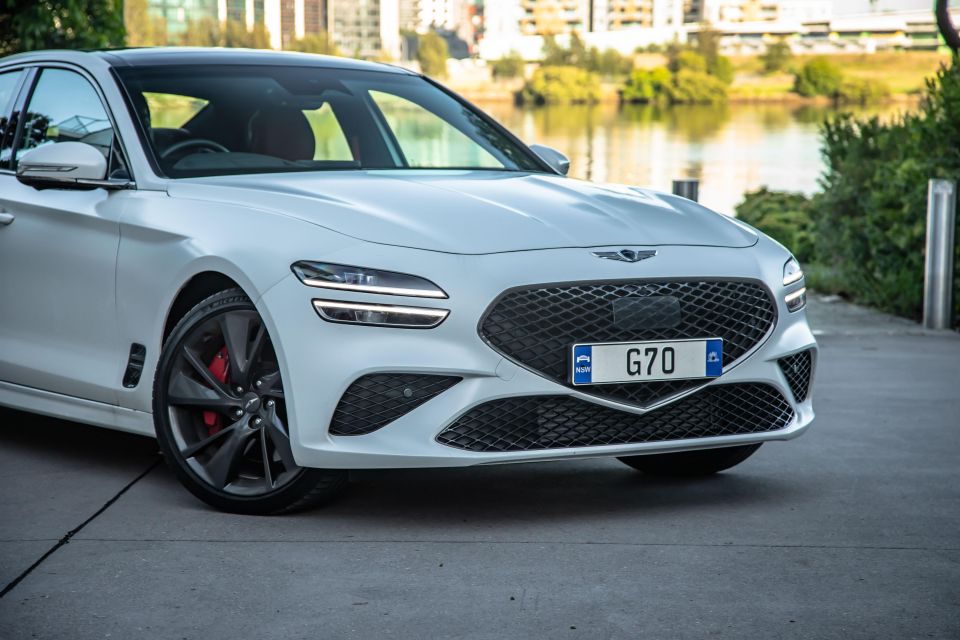
The top dog of the G70 range delivers nicely on everything it sets out to represent. It looks great, feels upmarket, it’s bloody swift and properly fiery when it needs to be, and functions as a fine luxury cruiser when you want it to.
It’s a well-round package that flies above the Stingers and Sonata N Lines, and feels more substantial and potent than what Euro rivals offer for similar money. It also starts to look like a proper bargain when measured up against pricier, performance-oriented German sedans.
The ownership program adds further icing on the cake, and the marque’s new buyback program is perhaps the strong retort to concerns about resale for a brand still trying to get serious traction on the Australian landscape.
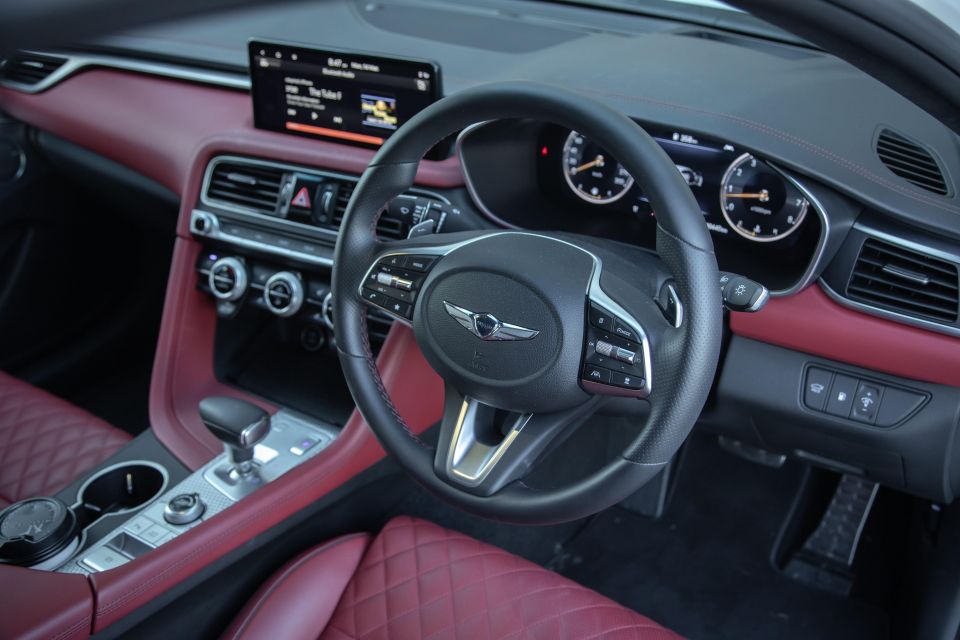
Click the images for the full gallery
MORE: Everything Genesis G70
Where expert car reviews meet expert car buying – CarExpert gives you trusted advice, personalised service and real savings on your next new car.


Andrew Maclean
3 Months Ago
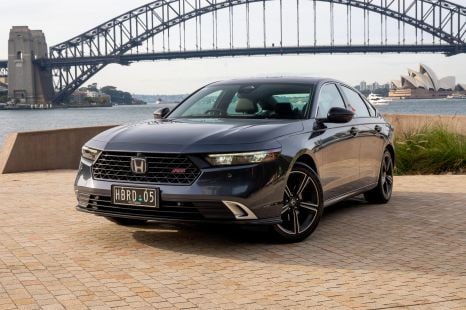

Andrew Maclean
2 Months Ago
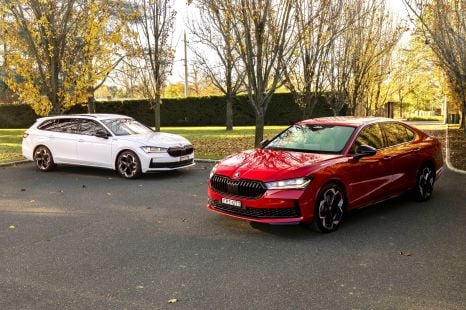

Max Davies
2 Months Ago
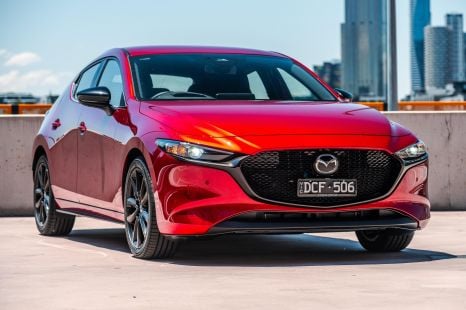

Josh Nevett
2 Months Ago
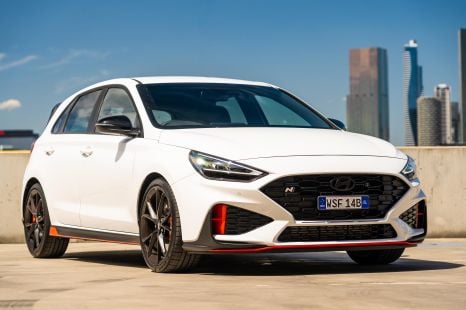

Josh Nevett
1 Month Ago
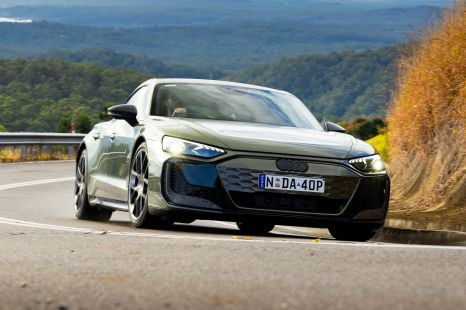

James Wong
1 Month Ago